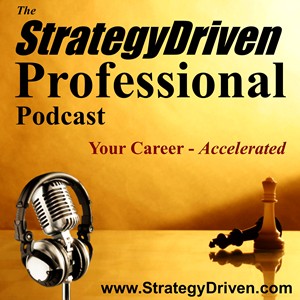Don’t just drink the water, eat it!
Ask anyone in New York City why their bagels are the BEST in the world and they’ll say, “It’s the water!”
Ask anyone in Philadelphia why their cheesesteaks are the BEST in the world, and they will say, “It’s the bread.” Further questioning one will ask, “Why is the bread so different?” and they will say, “It’s the water!”
Water? Really?
Yes, water!
The unique water that’s ADDED to the standard ingredients makes the food BEST.
So I’m going to ask you two questions:
What’s in your water?
What makes your water different, better, than anyone else’s water?
There are 7.5 elements of your water that I will challenge you make you no different than anybody else’s water on the planet, and further challenge you that if you decide to improve those elements (your water), you can become the best in the world. Or at least the best in your marketplace.
1. Your attitude water. If you know and understand the classic definition of a positive attitude is, “The way you dedicate yourself to the way you think,” then it’s obvious that you can change and improve your attitude water by changing your morning routine. Wake up and start reading instead of watching TV. Reading a positive attitude book for ten minutes, highlighting, and taking notes about your thoughts, can begin a whole new attitude mindset that will separate and differentiate you from all of your peers, prospects, and customers.
2. Your belief water. While I have talked about belief for years, I’ve never said what it would take to build and strengthen your existing belief process. Invest thirty minutes of your time and make a list of the five parts of belief. You must believe you are the BEST person for the job, have the BEST business and products, that you can differentiate FROM your competitors, and that the customer is better off having purchased from you. If you don’t believe that your water is the best, how will you be able to transfer that message to anyone else?
3. Your compelling message and enthusiasm’s water. Present a compelling message and you will immediately differentiate yourself from 99.9% of all the salespeople on the planet. These are people who communicate poorly, or simply talk in terms of themselves. By becoming a prepared and enthusiastic presenter, you will be perceived as sparkling water. The opposite of sparkling water is flat water. In France it’s, “with gas” or “without gas.” Starting to get the message?
4. Your innovative ideas water. When you bring an idea to a customer it shows that you have prepared in terms of them. Your idea is about them and how they win, or how they profit. Once you get in the groove of innovation in creating ideas it will spill over to everything that you do. That’s hot water.
5. Your follow-through water. This water is the fulcrum point in the sale. Even if you have already made the sale, your customers expect both delivery and service in order to complete the sale in their mind. You will solve nothing until the customer receives your product or service, loves your product or service, and is completely impressed by the way you stay in touch and follow through.
6. Your relationship building water. Solid value-based relationships lead to repeat business and referrals. Do I need to say anything else about the importance and the value of this water?
7. Your trustworthiness water. This is slowly aged water. Trustworthiness comes from positive, favorable, consistent, truthful actions taken over time. Trust is not built in a day, it’s built day-by-day.
7.5 Your reputation water. Reputation water is the most valuable of them all. It means the rest of your water has all been given and received positively. It means that you have consistently performed to the delight of your customer. And it means that anyone can find you on the Internet and see your positive postings and results. It means that you have proven yourself to your customers and in your marketplace. You can never have too much reputation water. It’s my hope that your cup of reputation water runneth over.
BEST PART: When someone asks you why your sales are better that anyone else’s, your response can now be, “It’s the water!” – Keep ‘em guessing, baby. Keep ‘em guessing.
My water? I’m a Volvic water guy myself – switched from Fiji to France.
About the Author


 Josh Davis, Ph.D., received his bachelor¹s from Brown University and his doctorate from Columbia University. He is the director of research for the NeuroLeadership Institute (NLI), a global institute dedicated to synthesizing scientific research and guiding its use in the business and leadership fields. Davis is also a member of the faculty at Barnard College of Columbia University, a NeuroCoach, and a certified Master Practitioner in Neurolinguistic Programming (NLP). HE has blogged for HBR.org and Psychology Today, and his work has been reported online at CNN, CBS News, MSNBC, USA Today, and Bloomberg Businessweek.
Josh Davis, Ph.D., received his bachelor¹s from Brown University and his doctorate from Columbia University. He is the director of research for the NeuroLeadership Institute (NLI), a global institute dedicated to synthesizing scientific research and guiding its use in the business and leadership fields. Davis is also a member of the faculty at Barnard College of Columbia University, a NeuroCoach, and a certified Master Practitioner in Neurolinguistic Programming (NLP). HE has blogged for HBR.org and Psychology Today, and his work has been reported online at CNN, CBS News, MSNBC, USA Today, and Bloomberg Businessweek. Question:
Question: Leadership authority Roxana (Roxi) Hewertson is a no-nonsense business veteran revered for her nuts-and-bolts, tell-it-like-it-is approach and practical, out-of-the-box insights that help both emerging and expert managers, executives and owners boost quantifiable job performance in various mission critical facets of business. Through
Leadership authority Roxana (Roxi) Hewertson is a no-nonsense business veteran revered for her nuts-and-bolts, tell-it-like-it-is approach and practical, out-of-the-box insights that help both emerging and expert managers, executives and owners boost quantifiable job performance in various mission critical facets of business. Through  StrategyDriven Professional Podcasts focus on the tools and techniques business professionals can use to accelerate their careers and personal goals achievement. These podcasts elaborate on the principle, best practice, and warning flag articles found on the StrategyDriven Professional website.
StrategyDriven Professional Podcasts focus on the tools and techniques business professionals can use to accelerate their careers and personal goals achievement. These podcasts elaborate on the principle, best practice, and warning flag articles found on the StrategyDriven Professional website. Rommin Adl is Executive Vice President and Global Partner at BTS USA, a leader in the development and delivery of high-impact experiential learning initiatives that drive alignment, mindset, and capability around strategic priorities. For over twenty years, Rommin has advised leaders at companies including Aetna, AT&T, GlaxoSmithKline, Honeywell, Humana, Time Warner, and many others on issues of strategy development and implementation.
Rommin Adl is Executive Vice President and Global Partner at BTS USA, a leader in the development and delivery of high-impact experiential learning initiatives that drive alignment, mindset, and capability around strategic priorities. For over twenty years, Rommin has advised leaders at companies including Aetna, AT&T, GlaxoSmithKline, Honeywell, Humana, Time Warner, and many others on issues of strategy development and implementation.